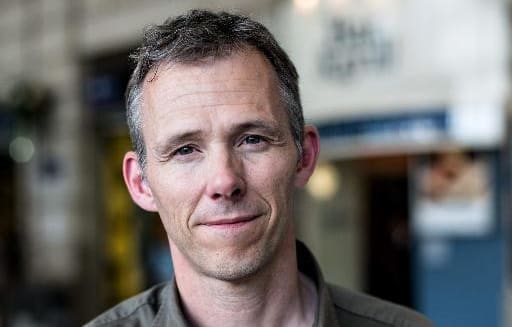The UK general election has ended in a hung parliament and current prime minister Theresa May is expected to go.
What does this mean for the thing that started off the snap election, Brexit?

Photo: Supplied
Kim Hill asks Tim Bale, author and Professor of Politics at London's Queen Mary University.
Expectations for the Labour Party leader Jeremy Corbyn were low, says Bale, but in this election he managed to do something remarkable in adding ten percent to Labour's vote share from the 2015 general election.
"That's one of the biggest advances we've really seen from a political party between one election and another."
So why, when most people thought Labour would go down, has it gone up considerably, gaining 31 seats?
One reason is that the Conservative Party fought a very poor campaign, says Bale.
"They were so confident they were going to make it back into the government that their manifesto really concentrated on giving them room for manoeuvre and it was all about hedging their bets. It wasn't a particularly positive document."
By contrast, Labour's "Father Christmas" manifesto included something for everyone.
Theresa May turned out to be a poor campaigner who lacked the strong vision that might have compensated for her personal shortcomings, he says.
"The Conservative Party effectively conducted a coronation last summer and didn't have a leadership contest, which meant that the person they ended up with wasn't battle-hardened and field tested.
"She certainly isn't a very spontaneous, flexible person. One commentator called her 'The Maybot' and that caught on. She was just spewing out sound bytes time after time and couldn't think on her feet."
Thirdly, in the last couple of years, the UK government's austerity programme (which has been running since 2010) started to cut to the bone, particularly affecting the National Health Service and schools, Bale says.
Commentators are saying this election result could represent the end of what is called 'hard Brexit'.
Most people define 'hard Brexit' as the UK leaving the EU's single market and customs union.
"We'd have to do that because we don't want – apparently – freedom of movement anymore, we don't want to allow EU citizens to come and work here and we don't want to be subject to the European Court of Justice, the EU's court, which means we can't be in the customs union."
In a 'soft Brexit', the UK would retain a much closer relationship with the EU and still be part of the single market, like Norway.
Bale is unsure there will now be a soft Brexit.
"One of the reasons that Theresa May called this election was hopefully to grow her majority so she would be less dependent on the Euro-skeptic 'ultras', the so-called 'headbangers' in her own party. Unfortunately, because she's now ended the election with fewer MPs and no majority, those Euro-skeptic headbangers will probably be even more powerful and possibly have more of a say in the direction of the Conservative government's policy on Europe."
May is getting a lot of blame from within the Conservative Party, he says.
"They can't possibly go into another election with her as their leader and many people are saying this minority government that she wants to set up will be so unstable and will collapse reasonably quickly, therefore precipitating yet another election."
So how much longer does Bale think she will be prime minister?
"Worst case, it will be days. I think probably it might be weeks, but at best I think it will be months."

